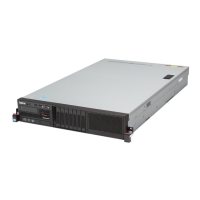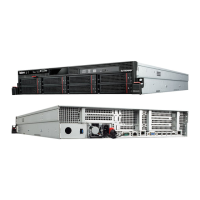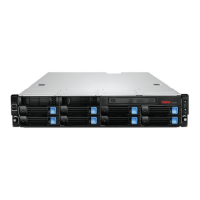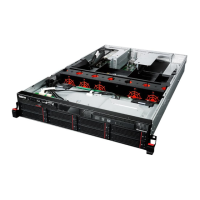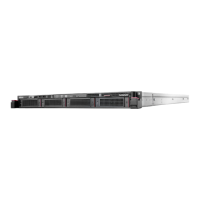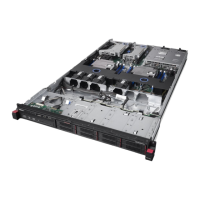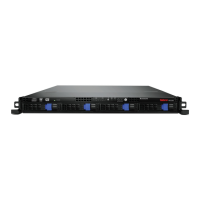23. In the Kdump window, select Enable kdump if you want to enable kdump, and then click Finish to
complete the installation.
Note: When prompted to restart the server, click Yes and OK.
24. Follow the instructions on the screen to log in to the operating system.
Installing the Red Hat Enterprise Linux 6.7 operating system
This topic provides instructions on how to install the following operating systems:
• RedHat Enterprise Linux 6.7 (x86)
• RedHat Enterprise Linux 6.7 (x64)
To install the Red Hat Enterprise Linux 6.7 operating system, do the following:
1. Insert the operating system installation disc into the optical drive that you have set as the first startup
device. Then, start the server from the optical drive.
2. In the “RedHat Enterprise Linux 6.7 Welcome” window, do one of the following depending on your
server configuration:
• If the SATA configuration is set to IDE, AHCI, or Add on RAID, go to step 3.
• If the SATA configuration is set to OB SATA RAID, do the following:
a. When “RHEL installation welcome screen” is displayed, press Tab.
b. Enter a space and type linux dd blacklist=ahci nodmraid, and then press Enter.
c. In the “Do you have a driver disk?” window, select Yes.
d. In the Driver Disk Source window, go to the folder where the driver is stored and click OK.
e. When the Driver Disk Source window is displayed again, click OK.
f. In the Select driver disk image window, select your desired driver and then click OK.
g. In the “Do you wish to load any more driver disks” window, click No.
3. When the Disk Found window is displayed, select Skip and then press Enter.
4. In the RED HAT window, click Next.
5. Select the language that you want to use during the installation process and click Next.
6. Select the appropriate keyboard layout for the system and click Next.
7. Select the type of devices that are involved in the installation, and then click Next.
Note: If the Storage Device Warning window is displayed, click Yes, discard any data. If the message
displays as “At least one existing installation has been detected on your system. What would you like to
do?”, select the option as you desired and then click Next.
8. Type a name for your server. Then click Next.
9. Specify your time zone by selecting the nearest city in your time zone. Then click Next.
10. Personalize the server by typing the root password for the root user account. Then click Next.
Note: If a message prompts you that the password is weak, click Use Anyway.
11. In the Which type of the installation would you like window, select your desired option. The following
steps are based on the scenario that Create Custom Layout is selected in this step.
12. In the Please Select A Device window, do one of the following to create a partition and then click Next.
• Manually create a root partition (/)
To create a root partition, do the following:
Chapter 3. Installing an operating system in legacy mode 81

